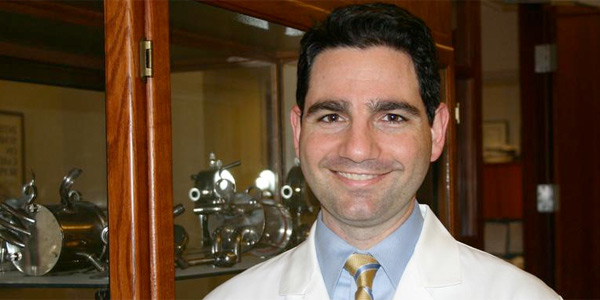News
Brigham Shooting Sheds New Light on Hospital Violence Legislation

Brigham and Women's Hospital staff were relatively prepared when a man pulled out a gun in a lobby full of people and fired two shots at a cardiac physician.
The building was evacuated with help from a loudspeaker warning patients and staff of an emergency. Training conducted with videos kicked in, with staff taking the right positions and right actions, said Ron Walls, executive vice president and chief operating officer after the shooting, which ultimately resulted in the deaths of the shooter and the physician.
A detail officer nearby was on the second floor crime scene within seconds, and preparations undertaken with the Boston Police Department helped police to clear the scene in 15 minutes.
It's a level of preparedness that some in the medical community said is not consistent at every hospital in the state, and the incident has shed new light on recently filed legislation that seeks to mandate training around workplace violence at every health care facility in the state.
"It adds some accountability to the system, doesn't just leave it in the hands of hospital administration," said David Schildmeier, spokesman for the Massachusetts Nurses Association, which filed the bill with the backing of Sen. James Timilty and Rep. Michael Brady. "It's a way of ensuring everybody takes a look at all the risks and that there is a plan in place. If there is, the law won't affect it whatsoever. But there are numerous facilities where we've had problems."
Schildmeier said nurses have protested for security to be added to the psychiatric unit at Cape Cod Hospital, where several incidents have occurred.
Brockton Hospital also cut a police detail in its emergency department in mid-2000s. From May 2006 to May 2007, over 1,000 calls were made to police from inside the hospital to deal with issues in the ER, Schildmeier said. It wasn't until an OSHA inspection was conducted in 2007 that employee training was implemented to deal with violent episodes.
While hospital shootings are rare – only 150 occurred from 2000 to 2011 in the U.S., according to research published in the Annals of Emergency Medicine – Schildmeier said 70 percent of hospital ER nurses reported being assaulted during their career.
The MNA has attempted to file similar legislation for over a decade, after a nurse was allegedly assaulted by a patient in Quincy Mental Health. Though the nurse pressed charges against the patient, a judge ultimately said dealing with the incident was a part of her job.
Each year, the union group has made progress in getting the legislation passed, Schildmeier said, and the Brigham shooting may bring to light the necessity to deal with the issue more broadly.
"It raises the specter of workplace violence is a serious issue. Coincidentally, we had refilled this bill (last week)," Schildmeier said. "This isn't aimed at the Brigham, but this is a wake-up call to all of us. We need to do what we can to mitigate the risk of harm, patients families and workers."
The legislation asks that health care employers perform a risk assessment, and then develop a program to minimize workplace danger. The law asks that a senior manager will be in charge of an in-house crisis response team.
The language also gives employees recourse to report violations and seeks to fine providers who don't comply with the requirements.
John Erwin, executive director for the Conference of Boston Teaching Hospitals, said such regulations largely aren't needed.
"I think its common sense in a lot of places. That occurs in all of our hospitals. All of them have in place policies and procedures in how to identify and respond to work place violence," he said.
The best way to address workplace violence is by sharing information, Erwin said, a practice common amongst emergency preparedness staff at Boston hospitals.
Original article: http://m.bizjournals.com/boston/blog/health-care/2015/01/brigham-shooting-sheds-new-light-on-hospital.html?r=full